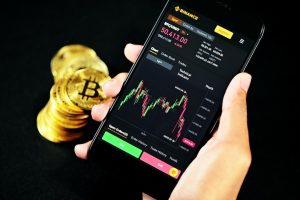Forex trading has become increasingly popular in recent years, with more and more people looking to invest in the global currency market. One of the key players in this market is the forex broker, who acts as a middleman between traders and the market itself. But what exactly is a forex broker, and what role do they play in the forex market?
At its simplest, a forex broker is a company or individual that provides access to the foreign exchange market for traders. This can include access to trading platforms, market research and analysis, and other tools and resources that help traders make informed decisions about their investments.
There are a number of different types of forex brokers, each with their own unique features and advantages. These include:
Retail Forex Brokers: These are the most common type of forex brokers, and are typically geared towards individual traders. They offer a range of trading platforms and tools, as well as access to a wide variety of currency pairs and other financial instruments.
Institutional Forex Brokers: These brokers are geared towards larger institutional investors, such as banks, hedge funds, and other financial institutions. They may offer more advanced trading platforms and tools, as well as access to more specialized financial instruments.
Introducing Brokers: These are brokers that work with retail forex brokers to introduce new clients to the market. Introducing brokers typically receive a commission or other compensation for their services.
White Label Brokers: These are forex brokers that offer their services under another company’s brand name. This can be a cost-effective way for companies to enter the forex market without having to invest in their own technology and infrastructure.
Regardless of the type of forex broker, there are a number of key services and features that they should offer to traders. These include:
Trading Platforms: Forex brokers should offer a range of trading platforms, including both desktop and mobile options. These platforms should be easy to use and offer a wide range of tools and resources to help traders make informed decisions.
Market Research and Analysis: Forex brokers should provide access to market research and analysis tools, including technical and fundamental analysis, as well as news and other market data.
Customer Support: Forex brokers should offer excellent customer support, including 24/7 availability, multiple contact options, and knowledgeable staff who can help traders with any questions or issues they may have.
Regulation and Security: Forex brokers should be regulated by reputable authorities, such as the Financial Conduct Authority (FCA) in the UK, the National Futures Association (NFA) in the US, or the Australian Securities and Investments Commission (ASIC) in Australia. They should also have robust security measures in place to protect traders’ funds and personal information.
In addition to these core services, forex brokers may also offer a range of other features and benefits to traders. These can include bonuses and promotions, educational resources and webinars, and social trading platforms that allow traders to follow and copy the trades of more experienced traders.
Overall, a forex broker is a vital part of the forex trading ecosystem, providing traders with access to the global currency market and the tools and resources they need to succeed. When choosing a forex broker, it’s important to look for one that offers a range of trading platforms and tools, excellent customer support, and strong regulation and security measures. With the right broker by their side, traders can navigate the forex market with confidence and achieve their investment goals.






